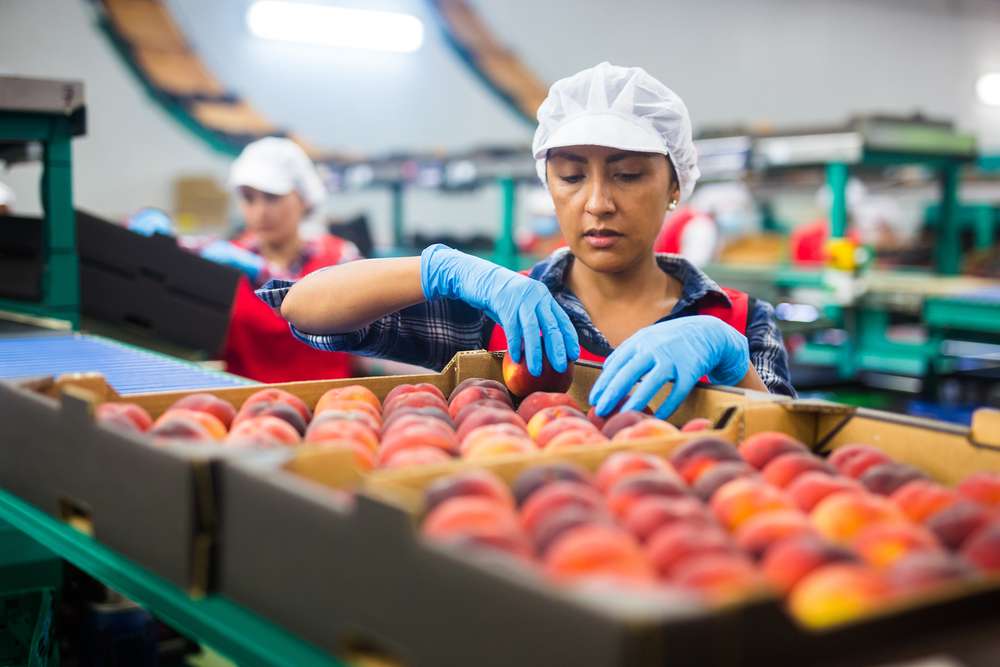A Day in the Life of a Food Packer: Key Responsibilities and Skills
Working as a food packer is an essential role in the food production process. From ensuring products are securely packaged to maintaining quality standards, discover how food packers contribute to the safety and freshness of food. Learn about the skills needed and the positive impact this job has on the industry.

What Are the Key Responsibilities of a Food Packer?
Food packers handle a variety of tasks that keep production lines running smoothly. Their primary responsibility involves preparing food products for distribution by placing items into appropriate containers, boxes, or packaging materials. This includes weighing products to ensure accuracy, labeling packages with correct information such as dates and batch numbers, and inspecting items for defects or damage before sealing.
Another crucial duty is maintaining cleanliness and hygiene throughout the workspace. Food packers must follow strict sanitation protocols, regularly cleaning equipment and work surfaces to prevent contamination. They also monitor packaging machinery, reporting any malfunctions to supervisors and performing basic maintenance when required. Additionally, food packers often work as part of a team, coordinating with colleagues to meet production targets while adhering to health and safety regulations.
Record-keeping forms another important aspect of the role. Food packers document production quantities, report quality issues, and track inventory levels to ensure efficient stock management. These responsibilities require attention to detail and a commitment to maintaining the high standards expected within the food industry.
What Skills Are Required for Food Packing Roles?
Successful food packers possess a combination of practical abilities and personal qualities. Manual dexterity ranks among the most important skills, as the role involves repetitive tasks such as folding boxes, sealing packages, and operating hand tools. Good hand-eye coordination helps workers maintain speed without compromising accuracy.
Physical stamina is equally essential, as food packing often requires standing for extended periods and lifting moderately heavy items throughout shifts. Workers must be comfortable performing repetitive motions while maintaining consistent quality standards. Basic numeracy skills prove valuable for weighing products, counting items, and recording production data accurately.
Attention to detail cannot be overstated in this role. Food packers must spot defects, ensure proper labeling, and verify that packaging meets specifications. Time management skills help workers balance speed with precision, meeting deadlines without sacrificing quality. Finally, teamwork and communication abilities enable food packers to collaborate effectively with colleagues and respond promptly to supervisor instructions.
Why Is Food Packaging Important in the Industry?
The importance of food packaging extends far beyond simply wrapping products. Proper packaging protects food from physical damage, contamination, and environmental factors during transportation and storage. This protection helps extend shelf life, reduces waste, and ensures products reach consumers in optimal condition.
Packaging also serves critical informational purposes. Labels provide consumers with essential details including ingredients, nutritional information, allergen warnings, and use-by dates. This transparency supports informed purchasing decisions and helps protect public health by alerting consumers to potential allergens or dietary concerns.
From a commercial perspective, packaging influences brand recognition and purchasing behavior. Well-designed packaging attracts consumer attention while conveying important messages about product quality and company values. For manufacturers, efficient packaging processes contribute to cost management and operational efficiency, making food packers integral to business success.
Environmental considerations have grown increasingly important in recent years. The food industry continues developing sustainable packaging solutions that minimize environmental impact while maintaining product safety. Food packers play a role in implementing these initiatives by correctly handling recyclable materials and following waste reduction protocols.
How Do Food Packers Ensure Quality and Safety?
Quality and safety represent paramount concerns in food packing operations. Food packers conduct visual inspections at various stages, checking for damaged products, incorrect weights, or packaging defects. They verify that seals are secure, labels are accurate, and products meet established quality standards before items proceed to distribution.
Hygiene practices form the foundation of food safety in packing environments. Workers must wash hands regularly, wear appropriate protective clothing such as hairnets and gloves, and follow strict protocols for handling food products. Many facilities require food packers to complete food hygiene training, ensuring they understand contamination risks and prevention methods.
Temperature control is another critical safety consideration, particularly for perishable items. Food packers monitor storage conditions and work quickly to minimize the time products spend outside controlled environments. They also follow FIFO (First In, First Out) principles to ensure older stock is packaged and distributed before newer inventory.
Documentation supports traceability throughout the supply chain. By accurately recording batch numbers, production dates, and quality checks, food packers help manufacturers track products and respond swiftly to any safety concerns. This meticulous approach protects consumers and maintains the integrity of food brands.
What Are the Positive Aspects of Working in Food Packing?
Food packing roles offer several advantages that appeal to workers across different backgrounds and career stages. Entry requirements are typically accessible, with many positions requiring no formal qualifications beyond basic literacy and numeracy. This accessibility makes food packing an excellent starting point for individuals entering the workforce or seeking career changes.
The work provides stable employment opportunities, as food production continues regardless of economic fluctuations. Many facilities operate year-round, offering consistent hours and the potential for overtime during busy periods. Some employers provide shift flexibility, accommodating workers who need to balance employment with other commitments.
Food packing roles also develop transferable skills valuable in various industries. Workers gain experience in quality control, teamwork, time management, and adherence to safety protocols. These competencies can support progression into supervisory positions, quality assurance roles, or other areas within manufacturing and logistics.
The social aspect of food packing appeals to many workers. Team-based environments foster camaraderie and provide opportunities to build professional relationships. For individuals who prefer structured, hands-on work over office-based roles, food packing offers a satisfying alternative that contributes directly to essential services.
Conclusion
Food packing roles encompass diverse responsibilities that demand attention to detail, physical capability, and commitment to quality standards. From ensuring products are correctly packaged and labeled to maintaining rigorous hygiene protocols, food packers fulfill essential functions within the food supply chain. The skills developed in these positions extend beyond the immediate role, offering valuable experience in quality control, teamwork, and safety compliance. As consumer expectations and regulatory standards continue evolving, food packers remain vital to delivering safe, well-packaged products to markets across the UK and beyond.




